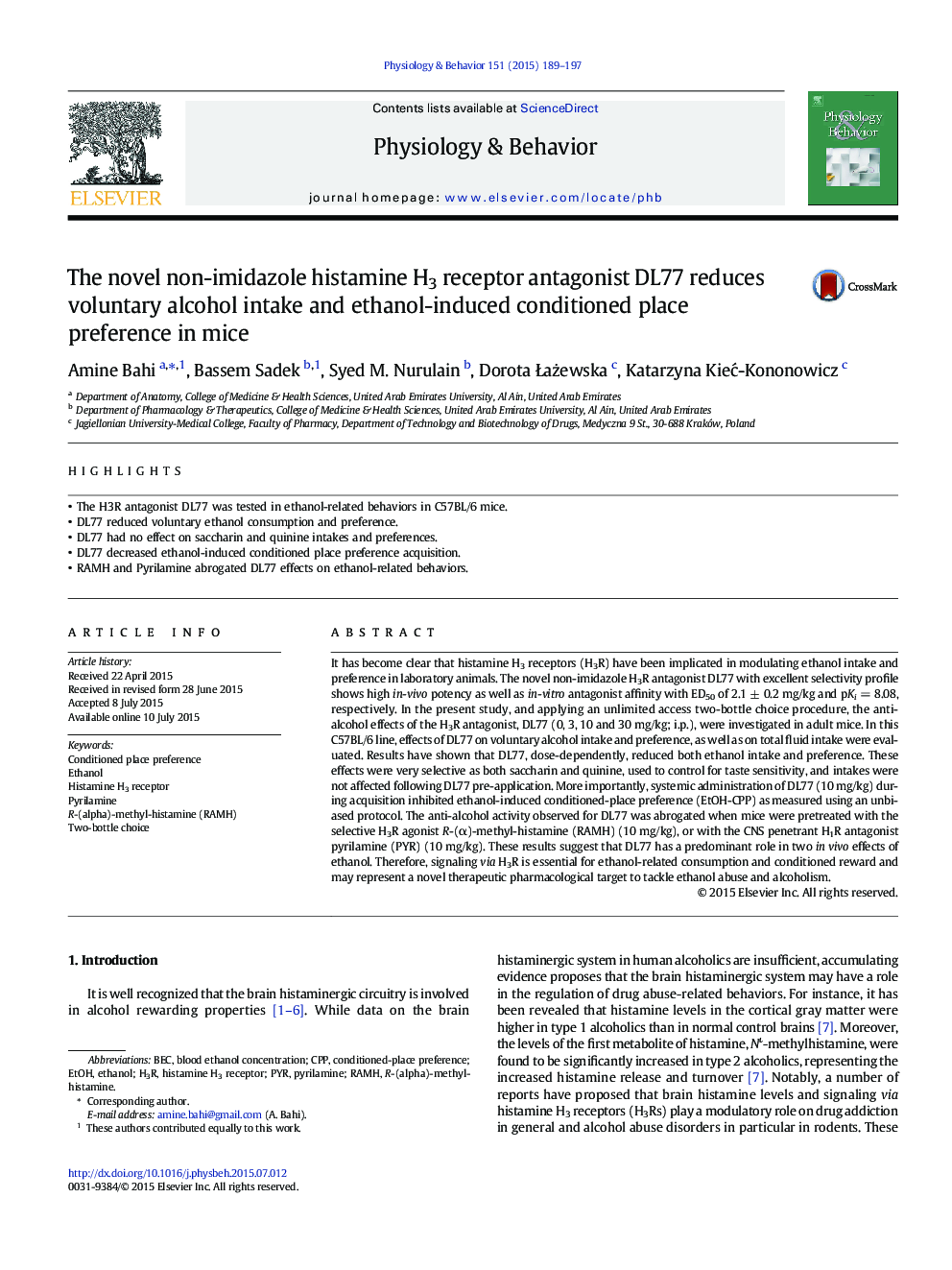| Article ID | Journal | Published Year | Pages | File Type |
|---|---|---|---|---|
| 5923254 | Physiology & Behavior | 2015 | 9 Pages |
Abstract
It has become clear that histamine H3 receptors (H3R) have been implicated in modulating ethanol intake and preference in laboratory animals. The novel non-imidazole H3R antagonist DL77 with excellent selectivity profile shows high in-vivo potency as well as in-vitro antagonist affinity with ED50 of 2.1 ± 0.2 mg/kg and pKi = 8.08, respectively. In the present study, and applying an unlimited access two-bottle choice procedure, the anti-alcohol effects of the H3R antagonist, DL77 (0, 3, 10 and 30 mg/kg; i.p.), were investigated in adult mice. In this C57BL/6 line, effects of DL77 on voluntary alcohol intake and preference, as well as on total fluid intake were evaluated. Results have shown that DL77, dose-dependently, reduced both ethanol intake and preference. These effects were very selective as both saccharin and quinine, used to control for taste sensitivity, and intakes were not affected following DL77 pre-application. More importantly, systemic administration of DL77 (10 mg/kg) during acquisition inhibited ethanol-induced conditioned-place preference (EtOH-CPP) as measured using an unbiased protocol. The anti-alcohol activity observed for DL77 was abrogated when mice were pretreated with the selective H3R agonist R-(α)-methyl-histamine (RAMH) (10 mg/kg), or with the CNS penetrant H1R antagonist pyrilamine (PYR) (10 mg/kg). These results suggest that DL77 has a predominant role in two in vivo effects of ethanol. Therefore, signaling via H3R is essential for ethanol-related consumption and conditioned reward and may represent a novel therapeutic pharmacological target to tackle ethanol abuse and alcoholism.
Keywords
Related Topics
Life Sciences
Biochemistry, Genetics and Molecular Biology
Physiology
Authors
Amine Bahi, Bassem Sadek, Syed M. Nurulain, Dorota Åażewska, Katarzyna KieÄ-Kononowicz,
